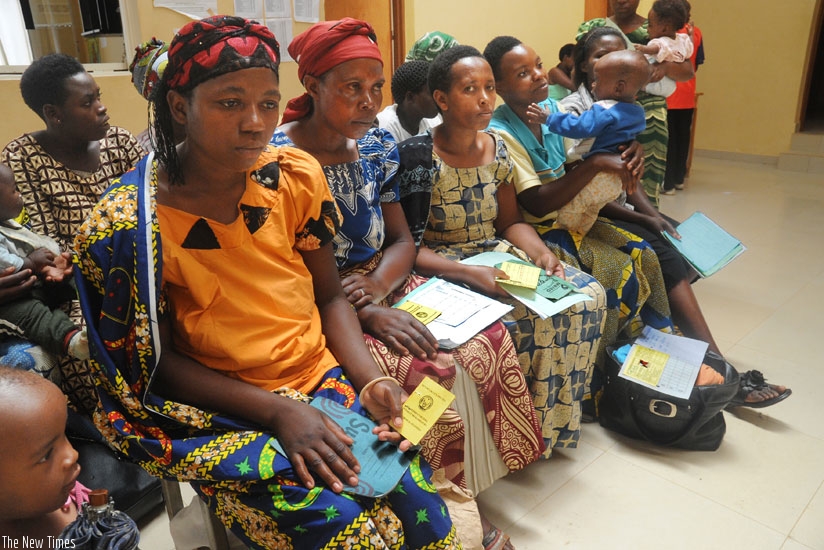With only weeks left to the closure of the 2015/16 financial year, officials have resolved to embark on a door-to-door campaign to increase subscription for community based health insurance (CBHI), Mutuelle de Sante.


With only weeks left to the closure of the 2015/16 financial year, officials have resolved to embark on a door-to-door campaign to increase subscription for community based health insurance (CBHI), Mutuelle de Santé.
The Ministry of Local Government and Rwanda Social Security Board (RSSB) believe that a spirited public awareness call to contribute to CBHI, will see the scheme receive a hundred percent subscription rate—consequently leading to improved healthcare in the country.
The scheme managed 81.68 premiums for the fiscal year ending June 30.
Mutuelle de Santé is for citizens without insurance coverage for professionals, such as La Rwandaise d’Assurance Maladie (RAMA), and Military Medical Insurance (MMI).
"Beginning next fiscal year (July 1), we not only want people to pay their Mutuelle de Santé contributions, but to do it on time and have as more voluntary subscribers as possible,” Dr Solange Hakiba, RSSB’s deputy director-general in charge of benefits, told a news briefing yesterday.
"We want a difference between now and previous times—the difference we want is to see Rwandans who have understood the importance of health insurance. And to those who can contribute for others, why not, they can always support the poor, such that everyone is insured.”
CBHI has in the recent past suffered a hiccup marred by local government officials mismanaging premiums, which saw a consistent fall in premiums reaching the national coffers, for disbursement into public hospitals.
An estimated 73 per cent of Rwandans subscribed to Mutuelle de Santé for their health insurance in the last fiscal year 2013/14, down from 80.7 per cent and 90.7 per cent in the financial years 2012/13 and 2011/12, respectively.
This also led to a huge debt on government’s side, with Rwf13 billion debt owed to hospitals.
To ensure quality management of the scheme a taskforce composed of different ministers and a technical taskforce were set up to analyse challenges facing the scheme and ways to address them.
The ministerial taskforce, composed of the Ministers for Local Government, Health, Finance and Cabinet Affairs, meet on a monthly basis, while the technical taskforce meets on a weekly basis to ensure any challenges are detected early enough and strategies to tackle them devised.
The team eventually resolved to move Mutuelle de Santé from the initial managers—Ministry of Health—and handed over to Rwanda Social Security Board (RSSB), in October 2015.
However, Hassan Bahame, the head of decentralisation department at Rwanda Governance Board and Director-General for Community Development and Social Affairs in the Ministry of Local Government, says, it is now upon the new district mayors and grassroots officials to change the face of Mutuelle de Santé.
"Those issues of mismanagement will no longer happen, now that the premiums will be handled by RSSB,” Bahame told journalists.
"What we ask local leaders now is to sensitise their communities through house-to-house campaigns to ensure that all people pay their premiums.”
Bahame also called on leaders of faith-based organisations to also preach to their congregations the need for improved healthcare, through paying their Mutuelle de Santé premiums.
"Religious leaders have a big influence in our communities, they should take it upon themselves to sensitise the people they lead, of the need to be insured, for a better health,” he said.
editorial@newtimes.co.rw


